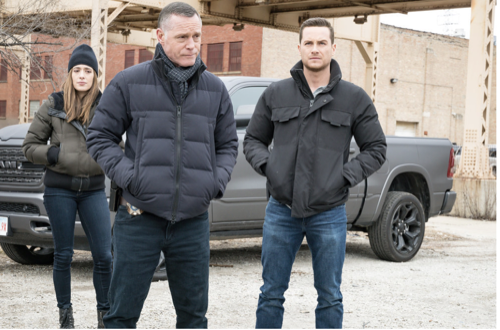
Chicago P.D. is not just a police procedural drama; it’s a gripping look into the lives of officers working tirelessly to uphold justice in one of America’s most dangerous cities. The show, part of the Chicago franchise, follows the tough yet compassionate members of the Intelligence Unit, who navigate the complexities of crime, corruption, and personal sacrifice while ensuring the streets of Chicago stay safe. In this article, we will dive deep into the impact of Chicago P.D., the central characters who make up the backbone of the show, and how the series has become a must-watch for fans of intense drama.
At the heart of Chicago P.D. is Detective Hank Voight, a morally complex leader of the Intelligence Unit. Voight, portrayed by Jason Beghe, is not your typical lawman. He is a tough, unyielding officer who often bends the rules to get results, making him a polarizing figure. His no-nonsense approach and willingness to cross lines in pursuit of justice have made him one of the most interesting and controversial characters in television. Voight’s leadership sets the tone for the unit, and his complicated relationships with the other officers add a layer of emotional depth to the show.
One of the standout features of Chicago P.D. is its strong ensemble cast. From Detective Jay Halstead (Jesse Lee Soffer), a skilled but emotionally conflicted officer, to Officer Kim Burgess (Marina Squerciati), whose determination to prove herself in a male-dominated field is both inspiring and heartbreaking, the show introduces characters who viewers can connect with on a deeply personal level. Each member of the team has their own backstory, adding richness and complexity to the narrative.

A significant plotline that kept viewers hooked was the turbulent relationship between Halstead and Officer Adam Ruzek (Patrick John Flueger). Their friendship and rivalry throughout the seasons have been a defining aspect of the show. Ruzek’s personal life and his deep internal struggles—especially his struggles with love, family, and guilt—have made him a character viewers root for despite his flaws. Halstead’s character arc, which has dealt with trauma and healing, also brought more attention to mental health awareness within the law enforcement community, a topic often overlooked in procedural dramas.
What sets Chicago P.D. apart from other cop dramas is its raw portrayal of the emotional toll law enforcement takes on its officers. From the personal sacrifices they make to the trauma they endure while on the job, the show paints an unfiltered picture of the highs and lows of policing. The balance of action-packed chases and thoughtful character development makes Chicago P.D. a show that resonates with viewers who appreciate both thrilling action and emotionally charged storytelling.
Another strong suit of the series is its portrayal of the gritty, dangerous streets of Chicago. The city is practically a character in itself, with its neighborhoods and various environments influencing the crime stories and the officers’ experiences. The show highlights the complexities of the justice system and the constant fight against corruption, as well as the moral dilemmas faced by the officers every day. As viewers follow the Intelligence Unit’s mission to take down the city’s most dangerous criminals, they also get a glimpse into the personal battles these officers face.
Chicago P.D. has proven time and time again that it isn’t just about solving cases—it’s about the people who do the solving. Whether it’s through the intense loyalty of the team, the tension-filled moments in the field, or the emotional and moral challenges the officers face, the show delivers a powerful message about justice, sacrifice, and redemption.
